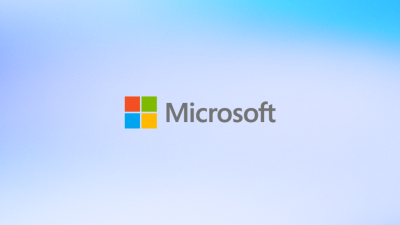Microsoft Unveils MAI-Image-1: Tech Giant Deepens In-House AI Development with Proprietary Image Generator
By: @devadigax

Microsoft AI has officially announced the debut of its first text-to-image generator developed entirely in-house: MAI-Image-1. This significant unveiling marks a pivotal moment in the tech giant's evolving artificial intelligence strategy, signaling a deeper commitment to proprietary AI development beyond its established partnerships. The company, which recently revealed a suite of other internally developed AI models, described MAI-Image-1 as "the next step on our journey," underscoring its long-term vision for a comprehensive AI ecosystem.
The introduction of MAI-Image-1 comes at a time of intense innovation and competition within the generative AI space. While Microsoft has been a leading proponent and investor in OpenAI, notably integrating DALL-E 3 into its Copilot experience and Bing Image Creator, this new announcement highlights a strategic pivot towards building its own foundational models. This move suggests Microsoft aims for greater control, customization, and differentiation in the rapidly expanding market for AI-powered content creation tools.
For years, Microsoft’s AI strategy has been characterized by a dual approach: leveraging cutting-edge models from partners like OpenAI while simultaneously conducting extensive research and development in its own labs. However, the recent announcements, including MAI-Image-1 and other unnamed in-house AI models, indicate a significant acceleration of the latter. This shift could be driven by several factors, including the desire to fine-tune AI capabilities for specific enterprise applications, ensure data privacy and security within its own Azure cloud infrastructure, and build proprietary technologies that offer a unique competitive edge.
The text-to-image generation market is already crowded with formidable players, from Stability AI’s open-source Stable Diffusion to Google’s Imagen and Meta’s Emu, not to mention OpenAI's DALL-E series. Microsoft's entry with MAI-Image-1 suggests confidence in its ability to offer a distinct value proposition. While specific technical details about MAI-Image-1, such as its architecture, training data, or unique features, are yet to be fully disclosed, industry observers anticipate that it will likely emphasize high-quality image generation, ethical AI principles, and seamless integration into Microsoft’s vast product portfolio.
One of the most compelling aspects of MAI-Image-1’s future could be its deep integration across Microsoft’s ecosystem. Imagine a version of Microsoft 365 Copilot where users can generate highly customized, branded images directly within PowerPoint presentations, Word documents, or Excel spreadsheets, all powered by an in-house Microsoft model. This could extend to Azure AI services, allowing developers to build custom applications with MAI-Image-1 as a core component, or even into gaming and metaverse initiatives where dynamic content generation is paramount. Such integration could provide a unified and powerful creative experience for millions of users.
The decision to develop MAI-Image-1 in-house also speaks to Microsoft's broader commitment to responsible AI. The company has been a vocal advocate for ethical AI development, emphasizing fairness, accountability, and transparency. By owning the full development lifecycle of MAI-Image-1, Microsoft can more directly implement its responsible AI principles, from mitigating biases in training data to developing robust safety filters and content moderation tools. This level of control is crucial for building trust and ensuring the technology is used for positive, productive purposes.
This move is not merely about launching a new product; it's a strategic declaration. It signifies Microsoft's ambition to be a full-stack AI company, capable of developing foundational models, integrating them into applications, and deploying them at scale through its cloud infrastructure. The "next step on our journey" quote reverberates with the promise of more innovations to come, potentially including further proprietary multimodal AI models that could redefine how users interact with Microsoft's platforms.
As MAI-Image-1 prepares for wider availability, the industry will be watching closely to see how it performs against established benchmarks and what unique capabilities it brings to the table. Its success will not only depend on the quality of its image generation but also on its seamless integration, enterprise-grade reliability, and adherence to responsible AI practices. Microsoft's in-house image generator marks a significant escalation in
The introduction of MAI-Image-1 comes at a time of intense innovation and competition within the generative AI space. While Microsoft has been a leading proponent and investor in OpenAI, notably integrating DALL-E 3 into its Copilot experience and Bing Image Creator, this new announcement highlights a strategic pivot towards building its own foundational models. This move suggests Microsoft aims for greater control, customization, and differentiation in the rapidly expanding market for AI-powered content creation tools.
For years, Microsoft’s AI strategy has been characterized by a dual approach: leveraging cutting-edge models from partners like OpenAI while simultaneously conducting extensive research and development in its own labs. However, the recent announcements, including MAI-Image-1 and other unnamed in-house AI models, indicate a significant acceleration of the latter. This shift could be driven by several factors, including the desire to fine-tune AI capabilities for specific enterprise applications, ensure data privacy and security within its own Azure cloud infrastructure, and build proprietary technologies that offer a unique competitive edge.
The text-to-image generation market is already crowded with formidable players, from Stability AI’s open-source Stable Diffusion to Google’s Imagen and Meta’s Emu, not to mention OpenAI's DALL-E series. Microsoft's entry with MAI-Image-1 suggests confidence in its ability to offer a distinct value proposition. While specific technical details about MAI-Image-1, such as its architecture, training data, or unique features, are yet to be fully disclosed, industry observers anticipate that it will likely emphasize high-quality image generation, ethical AI principles, and seamless integration into Microsoft’s vast product portfolio.
One of the most compelling aspects of MAI-Image-1’s future could be its deep integration across Microsoft’s ecosystem. Imagine a version of Microsoft 365 Copilot where users can generate highly customized, branded images directly within PowerPoint presentations, Word documents, or Excel spreadsheets, all powered by an in-house Microsoft model. This could extend to Azure AI services, allowing developers to build custom applications with MAI-Image-1 as a core component, or even into gaming and metaverse initiatives where dynamic content generation is paramount. Such integration could provide a unified and powerful creative experience for millions of users.
The decision to develop MAI-Image-1 in-house also speaks to Microsoft's broader commitment to responsible AI. The company has been a vocal advocate for ethical AI development, emphasizing fairness, accountability, and transparency. By owning the full development lifecycle of MAI-Image-1, Microsoft can more directly implement its responsible AI principles, from mitigating biases in training data to developing robust safety filters and content moderation tools. This level of control is crucial for building trust and ensuring the technology is used for positive, productive purposes.
This move is not merely about launching a new product; it's a strategic declaration. It signifies Microsoft's ambition to be a full-stack AI company, capable of developing foundational models, integrating them into applications, and deploying them at scale through its cloud infrastructure. The "next step on our journey" quote reverberates with the promise of more innovations to come, potentially including further proprietary multimodal AI models that could redefine how users interact with Microsoft's platforms.
As MAI-Image-1 prepares for wider availability, the industry will be watching closely to see how it performs against established benchmarks and what unique capabilities it brings to the table. Its success will not only depend on the quality of its image generation but also on its seamless integration, enterprise-grade reliability, and adherence to responsible AI practices. Microsoft's in-house image generator marks a significant escalation in
Comments
Related News

OpenAI Unveils ChatGPT Atlas: Your Browser Just Became Your Smartest AI Assistant
In a move poised to fundamentally reshape how we interact with the internet, OpenAI has officially launched ChatGPT Atlas, a gr...
@devadigax | 22 Oct 2025
In a move poised to fundamentally reshape how we interact with the internet, OpenAI has officially launched ChatGPT Atlas, a gr...
@devadigax | 22 Oct 2025

Netflix Doubles Down on Generative AI, Challenging Hollywood's Divide Over Creative Futures
In a move that underscores a growing chasm within the entertainment industry, streaming giant Netflix is reportedly going "all ...
@devadigax | 21 Oct 2025
In a move that underscores a growing chasm within the entertainment industry, streaming giant Netflix is reportedly going "all ...
@devadigax | 21 Oct 2025

AI Agent Pioneer LangChain Achieves Unicorn Status with $1.25 Billion Valuation
LangChain, the innovative open-source framework at the forefront of building AI agents, has officially joined the exclusive clu...
@devadigax | 21 Oct 2025
LangChain, the innovative open-source framework at the forefront of building AI agents, has officially joined the exclusive clu...
@devadigax | 21 Oct 2025

Meta Boots ChatGPT From WhatsApp: A Strategic Play for AI Dominance and Walled Gardens
In a significant move that reshapes the landscape of AI chatbot accessibility, OpenAI has officially confirmed that its popular...
@devadigax | 21 Oct 2025
In a significant move that reshapes the landscape of AI chatbot accessibility, OpenAI has officially confirmed that its popular...
@devadigax | 21 Oct 2025

Meta's New AI Peeks Into Your Camera Roll: The 'Shareworthy' Feature Raises Privacy Eyebrows
Meta, the parent company of Facebook, has rolled out a new, somewhat controversial artificial intelligence feature to its users...
@devadigax | 18 Oct 2025
Meta, the parent company of Facebook, has rolled out a new, somewhat controversial artificial intelligence feature to its users...
@devadigax | 18 Oct 2025
 AI Tool Buzz
AI Tool Buzz